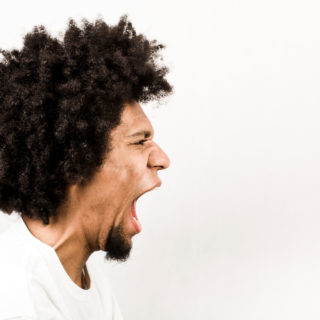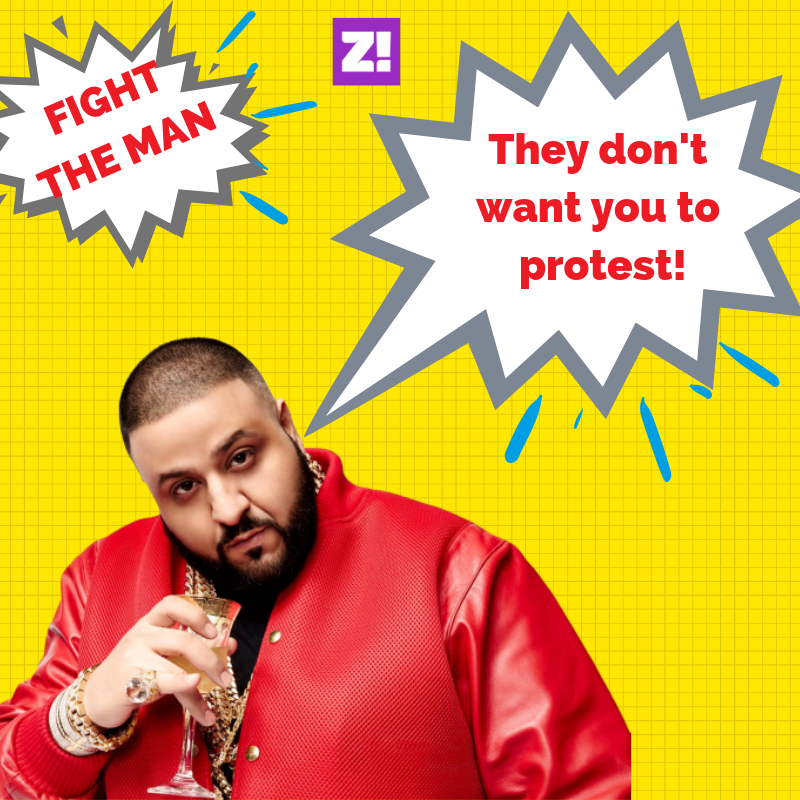
In my truest form, I am a militant, bandana wielding, Fela face-tat having, protest-line leading fighter of the fucked up Nigerian system. No political authority is too powerful, no public servant too untouchable and no worthy cause is too minor to go unrepresented.
Your boss attempting to make you work overtime without pay? I’m getting my megaphone. Lecturers insisting on an idiotic pass-fail rate for students? I’ll round up the troops. Streetlights and basic amenities unavailable in your locale? I’m starting a worthy petition. If there’s any country that could do with a healthy dose of protests, it’s Nigeria. Hourly, daily, weekly, yearly, until some high-up’s agbada is soaked through with sweat from skirting around to meet our demands. And know who would be leading the charge? Yours truly.
In reality however, I am only a casual observer of the Nigerian institution. Voicing my disappointment and disgust behind the safety of a television screen or crafting carefully chosen words from my mobile phone, hardly daring to spell out even the slightest of criticisms for fear of facing the same fate as those too vocal against, too critical of, too anything but sycophant towards the Nigerian government. As it currently stands, the Nigerian government has forgone its raison d’etre – the people, to become an all powerful agent, accountable primarily to itself. Magicking a turn-table, it has found a way to make itself a top, with the people being unwilling subs. The secret of its abilities? Good old suppression.
How do you prevent the people from gathering to speak against the shortcomings of your administration? Resorting to physical violence like firing live rounds on student protesters speaking against the arrest and detainment of El Zakzaky, or dispersing peaceful protesters of the BBOG movement with teargas to prevent their gathering — seems to work just fine for the Nigerian government.
As it appears, only certain kinds of protests are favoured by the powers that be — those pliant and paid for.
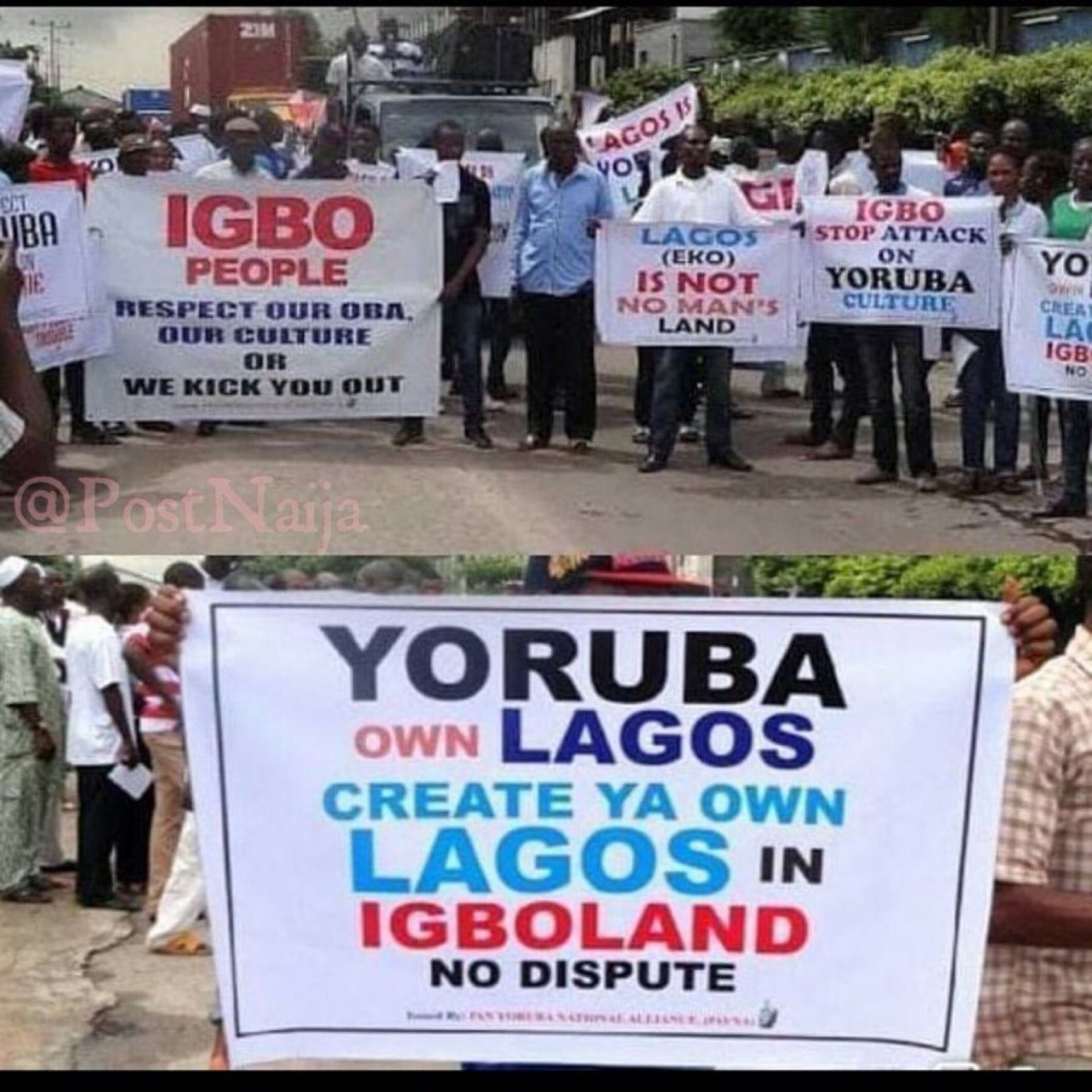

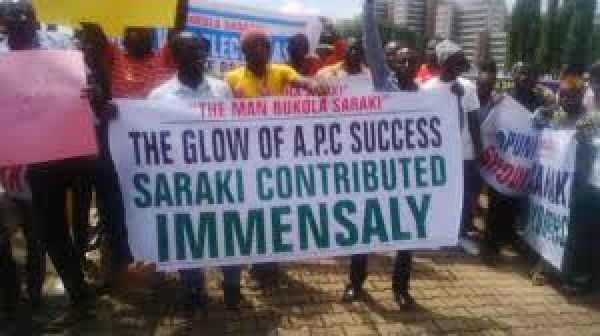
Which is why the government has other measures in place to make sure the proles don’t deviate too far from the script. Ever heard of the Cybercrime (Prohibition & Protection) Act 2015? You might want to check it out if you haven’t. This law, whose original purpose is cloaked in the “prohibition, prevention, detection and punishment of cyber crimes”, actually operates as a snare for intending and active critics of the government.
Its frightfully vague provisions impose a prison term of 3 months or a fine of up to ₦7 million to anyone causing: annoyance, inconvenience, danger, obstruction, insult, injury, criminal intimidation, enmity, hatred, ill will or needless anxiety to another.
‘Another’ here being mostly higher-ups in power .Which is why arrests based on instances of government criticism on forums like Facebook, Instagram and even Whatsapp, as are becoming more and more common place in the Nigerian political landscape.
Take the case of Johnson Musa for instance. For posting pictures of Kogi State Governor- Yahaya Bello’s Abuja residence on a Whatsapp group, he was arrested by members of the SSS. Likewise, John Danfulani, whose Facebook post criticising the Kaduna State government landed him 13 days behind bars.
Even more ludicrous is the case of Joe Chinakwe, who, after taking out the frustrations of the current administration on his canine who he personified as he-who-must-not-be-apparently named, found himself serving considerable jail time. Same with Gambo Saeed, who was awarded 9 months in prison for his efforts in calling out Aminu Masari, the Katsina state Governor on social media. Likewise Audu Makori, who, having posted a false claim that Southern Kaduna students had met their ends at the hands of Fulani herdsmen (a statement which was retracted), suffered through a lengthy detainment by the government.
These gagging measures adopted by the government, devious as they are, have proven to be effective. Which is why silence greets a country where the president takes an unscheduled medical leave abroad for 103 days, while hospitals in his home country are relegated to incessant strikes and the use of mobile phones as a light source during major surgeries. Also explains why Computer departments in the country’s universities teach Fortran in its original form – in 2019 and why members of its Senate can go home with 13 million as their monthly salary, while 61% of Nigerians live on less than $1 a day.
Contrast this with countries like Algeria, where mass protests against their ailing 81 year old president – Abdelaziz Bouteflika, prompted his decision to desist from contesting his fifth term of presidency, despite being severely ill and confined to a wheelchair since 2013. Or the gilets jaunes or Yellow Vests’ protests in Paris which successfully led to the cancellation of proposed plans by the French government to hike fuel tax rates. Even Nicaragua — whose militant youth is currently in the process of effecting a change from authoritarian leadership through incessant protests and objections to the oppressive leadership of its President – Daniel Ortega.
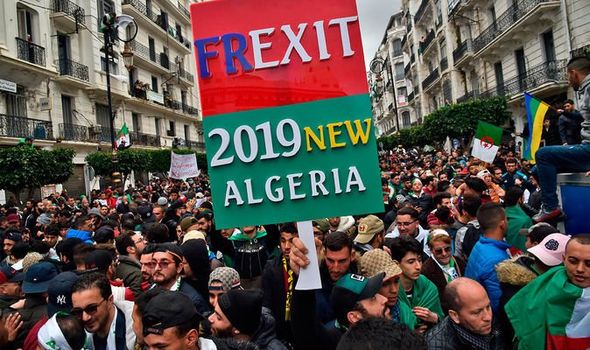
Protests are effective catalysts for change, Nigeria being no exception to the fact. The protests that crippled activities and forced the reduction of Nigerian fuel prices in 2002 being a notable example. It is also why the government is doing the most to threaten the strength in our numbers.
A threat certain Nigerians like Deji Adeyanju, Oby Ezekwesili and Dr Joe Odumakin are defying for the greater good.
Even though your name and mine may be missing from this list, it’s not too late to add our voices and play a role in holding Nigeria’s leader’s accountable.

For me, it’s no longer enough to mumble my best Yoruba curses behind my phone like I previously admitted, it’s time to act. Hopefully, you’re feeling the same way too, don’t let the man win.




